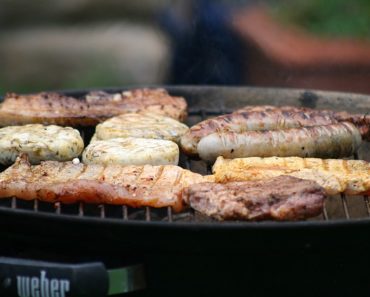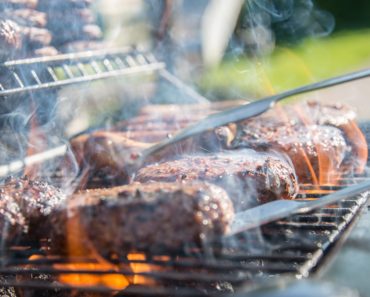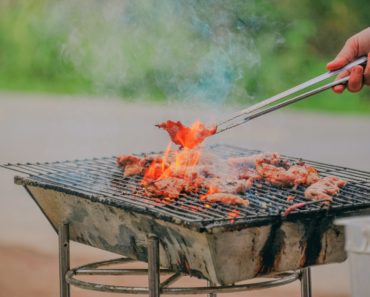Char broil vs weber
If you’re looking for a quality grill, you may be wondering whether to choose a charbroil or weber. Both brands have a lot of models to offer, so it can be tough to decide which one is right for you. In this article, we will compare the two brands and help you decide which one is better for your needs. Keep in mind that both grills are high-quality, so whichever one you choose, you won’t be disappointed!
What is a char broil?
A charbroil is a type of grill that uses direct heat to cook food. The food is placed over the heat source, which is typically charcoal or gas. This type of grill can also be used to cook indirect heat, which means that the food is not directly over the heat source. This is often done when cooking large items like whole chickens or roasts.
Features of a char broil:
Number of burnerers:
The number of burners on a charbroil can vary, but most have between two and four. This allows you to cook multiple items at once.
Cooking surface:
This is the total amount of space you have to place food on while cooking. The cooking surface typically ranges between 200 and 900 square inches.
BTU:
This is the measure of energy that comes from the burners. The higher this number, the faster and more powerful your grill will be.
Weight:
The weight of the grill can vary, but it is typically between 90 and 400 pounds.
Maintaining:
It takes some effort to keep you charbroil working in tip-top shape. You will need to clean it regularly and replace some parts when necessary.
Cleaning:
Over time, food particles can build up on the burners and cooking grates. It is important that these be cleaned each time after use so that they do not catch fire or burn out while you are using them. If this happens, you may damage your grill or cause a fire hazard in your home. It’s a good idea to check the manual for specific cleaning instructions that apply to your model.
Temperature gauge:
A temperature gauge is important for ensuring that your food is cooked evenly. It will allow you to keep track of the heat and make sure that your food doesn’t get too charred or undercooked.
Side shelves:
Side shelves provide a place to put your food while it cooks. This can be helpful for keeping everything organized and preventing accidents.
Porcelain-coated grates:
Porcelain-coated grates are important for ensuring that your food doesn’t stick to the grill. This makes it easier to clean and helps to prevent flare-ups.
Wheels:
Wheels are often included on charbroils so that you can move them around easily. This is particularly helpful if you want to take the grill off your porch or patio.
Dimensions:
The dimensions of a charbroil can vary quite a bit. You want to measure your space first so that you know how big the grill is going to be. Some models are on wheels, which means they may be between 48 and 60 inches long, 24 and 30 inches wide, and 20 and 25 inches high.
Cart style:
Many charbroils are designed like carts. This allows you to roll them around easily and put them away when you are done cooking.
Material of the grates:
The grates on a charbroil can be made from different materials. The most common are porcelain-coated steel, cast iron, and stainless steel.
Size:
When choosing a charbroil, size is an important consideration. You want to make sure that it will fit in the space you have available. Additionally, be sure to check the dimensions of the grill so that you know how much space it will take up.
Price:
Can vary in price from around $100 to $1,000 or more. Choose the one that fits your budget while still providing all the features you need.
Design:
Some grills are designed with a specific style in mind, such as contemporary or traditional. Choose the one that best suits your needs and décor.
Warranty:
Most grills come with a standard one-year warranty, but some have longer warranties. It’s important to know what is covered by the warranty and what isn’t.
Customer service:
something goes wrong with your grill; you’ll want to be able to easily reach customer service for help. Look for a company that has a good reputation for providing quality customer service.
Material:
The most common materials are porcelain-coated steel, cast iron, and stainless steel. Each has its own advantages and disadvantages. Be sure to choose the material that will work best for your needs.
Ease of use:
Grills are harder to use than others. Make sure the grill you choose is easy to operate so that you can cook your food safely and easily.
What is a weber?
Weber is a brand of charcoal and gas grills. They are one of the most popular brands on the market and have a wide variety of models to choose from.
Features of a weber:
Number of burnerers:
The number of burners on a weber grill can vary. Some have two, some have three, and some have even more. More is not always better, though. You want to make sure that you are choosing the right size for your needs.
Cooking surface:
The cooking surface is the amount of space available for cooking. On grills with two burners, this can be as small as 350 square inches and as large as 650 square inches or more. If you have a bigger family or regularly cook for lots of people, look for one with a larger cooking surface.
BTU:
BTUs, or British thermal units, are a measure of heat. The higher the BTU rating, the more heat the grill will produce. If you want to cook food quickly, look for a grill with a high BTU rating.
Weight:
Weber grills can vary in weight depending on their size and how much cooking surface they have. Generally, though, most weber grills weigh at least 100 pounds when loaded with propane tanks. This makes them too heavy to easily move around the yard or patio. If you want a portable grill that is easy to take with you wherever you go, choose another brand.
Maintaining:
Most of the parts on a weber grill are easily removable for cleaning. This includes the burners, cooking grates, lid, and charcoal grate. More expensive models feature an ash catcher that makes cleanup easier than ever before.
Cleaning:
Weber grills come with a simple-to-use cleaning system. The cooking grates and lid can be easily sprayed with water while the grill is still hot. This helps loosen any food particles that may have stuck to them. The grates can then be wiped clean with a soft brush or rag.
Temperature gauge:
A weber grill will have a built-in temperature gauge. This is important so you can monitor the heat and adjust it as needed. You don’t want to cook food at too low or too high of a temperature, so be sure to use the gauge to find the perfect heat level.
Side shelves:
In addition to a temperature gauge, most weber grills have side shelves so you can place tools or condiments close at hand. This makes it easier to grill your food without having to keep running back and forth from the house.
Porcelain-coated grates:
Porcelain-coated grates, or otherwise known as Flavorizer bars, are the most common type of weber grill grate. They contribute to even distribution of heat and help protect the burners from food particles. They can also be replaced when worn down.
Wheels:
Weber grills often come with wheels to make transport easier. This is a nice feature if you have a smaller grill that you want to be able to move around. Just be sure the grill is completely cool before moving it.
Dimensions:
Weber grills come in a variety of sizes. Make sure to measure the space you have available before purchasing one.
Cart style:
Some weber grills are available as carts. This allows you to put the cooking grate on one side of the grill and then place your propane tank on the other side. It also has two wheels so that it can be easily moved around.
Material of the grates:
The cooking grates on a weber grill can be made from a variety of materials. The most common is porcelain-coated steel, but you can also find grates made from cast iron, stainless steel, or even aluminum.
Size:
Weber grills come in a variety of sizes to fit your needs
Price:
Weber grills can range in price, but are generally more expensive than other brands
Design:
Weber grills come in both contemporary and traditional designs
Style:
Weber offers a variety of style options, including both classic and modern
Warranty:
Weber offers a 10-year warranty on its grill parts
Customer Service:
Weber has excellent customer service, with representatives available to help you with any questions or problems you may have
Material:
The cooking grates on a weber grill can be made from a variety of materials. The most common is porcelain-coated steel, but you can also find grates made from cast iron, stainless steel, or even aluminum.
Ease of use:
Weber grills are easy to set up and start using, although they can be a little more difficult to assemble than other brands. Generally, though, most weber grills weigh at least 100 pounds when loaded with propane tanks. This makes them too heavy to easily move around the yard or patio. If you want a portable grill that is easy to take with you wherever you go, choose another brand.
Pros and Cons of char broil and weber:
Both Weber and charbroil offer a variety of grills with different features. Weber offers a 10-year warranty on grill parts, while charbroil offers a 5-year warranty. Weber also has excellent customer service, with representatives available to help you with any questions or problems you may have. However, Weber grills are generally more expensive than charbroil grills. Additionally, Weber grills tend to be heavier and harder to move around than charbroil grills.
But if you’re looking for an easy-to-use, durable grill that will last for years, then a Weber is the perfect option for you. And with the variety of sizes and styles available, there’s sure to be one that fits your needs.
The similarities of char broil and weber:
Both Weber and charbroil offer a variety of grills with different features. Both brands have a warranty on their grill parts, and both have excellent customer service. Additionally, both brands offer a variety of sizes and styles to fit your needs. However, Weber grills are generally more expensive than charbroil grills. Additionally, Weber grills tend to be heavier and harder to move around than charbroil grills.
The differences of char broil and weber:
-Weber offers a 10-year warranty on grill parts, while charbroil offers a 5-year warranty. Weber has excellent customer service, with representatives available to help you with any questions or problems you may have. However, Weber grills are generally more expensive than charbroil grills. Additionally, Weber grills tend to be heavier and harder to move around than charbroil grills.
-Char broil offers the option of carts for easy transport
-You can put the cooking grate on one side of the grill and then place your propane tank on the other side
-The price of weber is much higher than that of char broil; however, they offer different designs (style), different types of smokers (e., g electric smoker, charcoal smoker) and different kinds of grills (e., g kettle grill vs. gas grill).
-Weber is known with its superior quality products; their grills are made in the USA. On the other hand, Char-Broil companies offer low prices, but their product is typically imported.
The Winner:
Both Char Broil and Weber offer a variety of choices, with both brands offering features that will meet your specific needs. If you’re looking for something that is easy to transport, then Char Broil has the perfect option for you. If grilling on a concrete or wooden deck is not allowed where you live, but you still want the convenience of a smoker grill, then weber is the best option. Both brands have great customer service and offer quality products with long-lasting durability. However, if you want more flexibility in terms of price and size options and are willing to pay extra for it, then weber might be the better brand for you.
FAQs
What is the primary difference between a char broil and weber?
The primary difference between a char broil and weber is that weber offers a 10-year warranty on grill parts, while charbroil offers a 5-year warranty. Additionally, Weber grills are typically more expensive than charbroil grills. Additionally, Weber grills are heavier and harder to move around than charbroil grills.
Which smoker is right for me?
A smoker grill is best suited to those who enjoy the traditional method of cooking meat. A smoker grill will allow you to cook your meat more slowly and it imparts a rich, tangy flavor and makes the inside tender and succulent. Smokers also offer a variety of options with different features; some smokers can even be converted into grills or ovens.
If you’re looking for an easy-to-use, durable grill that will last for years, then a Weber is the perfect option for you. And if weight isn’t as important as versatility and thickness, then weber offers the most possibilities in terms of size and thickness variations. Char broil doesn’t have as many options in terms of different sizes or thicknesses, but they do have the option of carts for easy transport.
Pros and Cons of a char broil and weber?
Char broil Pros:
-The price is lower than that of Weber.
-Offers the option of carts for easy transport.
-You can put the cooking grate on one side of the grill and then place your propane tank on the other side.
Char broil Cons:
-Typically imports their product.
-Does not have as many design options (style) as Weber.
Weber Pros:
-Offers a 10-year warranty on grill parts.
-Has excellent customer service, with representatives available to help you with any questions or problems you may have.
-Made in the USA.
Weber Cons:
-Heavier and harder to move around than charbroil grills.
-Typically, more expensive than charbroil grills.
-Does not have the option of carts for easy transport.
-Fewer design options (style) than charbroil grills.
Conclusion:
If you want something that is easy to transport, then choose Char Broil. If grilling on a concrete or wooden deck is not allowed where you live, but you still want the convenience of a smoker grill, then go for weber. Both brands have great customer service and offer quality products with long-lasting durability. However, if you want more flexibility in terms of price and size options and are willing to pay extra for it, then Weber might be the better brand for you.






